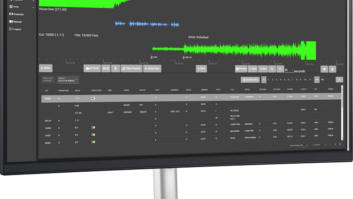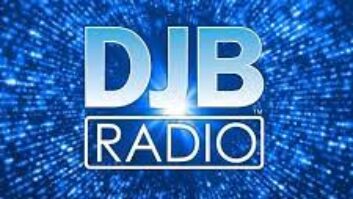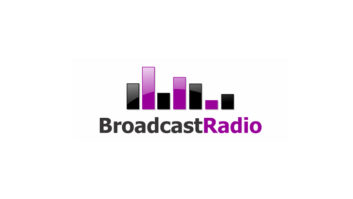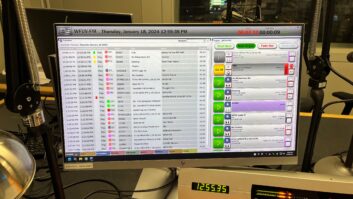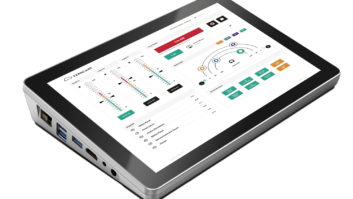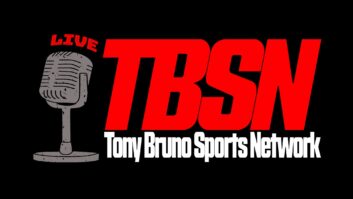DALLAS There’s a legal battle brewing over those familiar touchscreens — found in thousands of broadcast studios — that could eventually add to the cost of what broadcasters pay for the audio management systems.
Media Digital Corporation Inc. has filed a complaint in United States District Court for the Northern District of Texas alleging patent infringement by five broadcast equipment companies.
The plaintiff claims ENCO Systems, Radio Computing Services, Broadcast Electronics, Broadcast Software International/Cumulus and Prophet Systems Innovations/Clear Channel are selling touchscreen equipment with applications retained in a patent assigned to John Connell, formerly of MediaTouch, and now president of Media Digital.
The original patent application, titled “Computer TouchScreen Radio Station Control System,” was filed with the U.S. Patent and Trademark Office in 1985. Several continuation applications were granted before the patent was issued in 2000 to Connell, who was part-owner of MediaTouch until approximately 1995.
Dennis Mills, Doug Cyr and Norman Buck are listed as co-inventors of the technology but are not named as plaintiffs in the complaint. All three worked for Professional Computer Group in Bangor, Maine, at the time, which owned 10 percent of MediaTouch, according to Connell.
“They all signed releases at the time of the patent application. Since I had controlling interest of MediaTouch, I was listed as the assignee of record,” Connell said. The other co-inventors could not be reached for comment for this article.
Connell is a 63-year old entrepreneur who founded MediaTouch in 1984. The former broadcast engineer declined to say how much the pursuit of the patent has cost him or how much he believes the patent infringements by the suppliers have cost him over the years.
Connell was chief engineer at WEEI(AM) in Boston, then owned by CBS, when he conceived of the “touchscreen” concept for radio applications, he said.
“This was at a time when everything was still very experimental with PC’, networking, file transferring and sharing and managing audio files,” he said. He left WEEI in 1984 to start MediaTouch with the help of several minority investors.
It’s a display
The patent abstract describes the patent in part as “a computerized audio or video signal control system controlled by an announcer and having a display of the available signal sources and scheduled events which can be activated, mixed, faded and cued by the announcer in a scheduled order or in an order the announcer desires.”
Claims contained in the patent refer to a “touchscreen means for displaying information and for receiving input information.”
According to the original complaint, “Media Digital Corp. has been irreparably damaged to an extent not yet determined.” The company is seeking unspecified monetary damages.
Media Digital Corp. is based in Salem, N.H. Attorney Edward Casto, the lawyer representing Media Digital, declined to comment on the complaint.
Connell had assumed the patent application was never approved and did not know until 1999 that the patent was still considered to be on appeal with the Patent Office.
“This was a very long period of time from when I first filed it with the patent office. It had been rejected several times and lost by the patent office several times over the years,” he said. “Several searches on the patent came up with nothing, including one by Ron Paley when his group bought MediaTouch in 1995. We eventually just ran out of money to keep pursuing it.”
Connell said he had discussions with MediaTouch for nearly a year, beginning in 2000 when the patent was finally issued, to ensure he was legally able to go forward and enforce the patent.
Enforcement tedious
“We had to be sure we could move ahead with this. It has been a very long and tedious process,” he said.
Connell said Media Digital Corp. markets and sells touchscreen systems to the mobile DJ entertainment industry. The company currently does not sell broadcast gear.
Contacted by Radio World for reaction, RCS, BE, ENCO Systems, BSI and Prophet Systems Innovations declined to comment.
Lawyers representing Connell and Media Digital sent a letter outlining their copyright infringement concerns to the five broadcast equipment companies asking for a response by June 6 to their request to work out a resolution without resorting to litigation. Without an adequate response, the letter states, “We will have no other choice but to serve the complaint and commence litigation.”
Connell said the date for the automation suppliers to respond to the letter had been extended to July 8.
At least one supplier of touchscreen automation equipment has agreed to pay Media Digital a royalty for each touchscreen system it sells.
“We pay a $300 fee for each touchscreen we sell,” said Dave Scott, president of Scott Studios Corp. and its sister company, Computer Concepts Corp. “I also paid a $50,000 retroactive fee.”
Connell’s lawyers contacted Scott Studios more than a year ago about the alleged patent infringement, Scott said. “Our equipment does not infringe upon the MDC patent, but we decided agreeing to the royalty fee was a less-expensive resolution. I still believe the patent is invalid.”
A source familiar with the patent complaint said several other broadcast suppliers could receive letters from lawyers for Connell and Media Digital later this summer.





